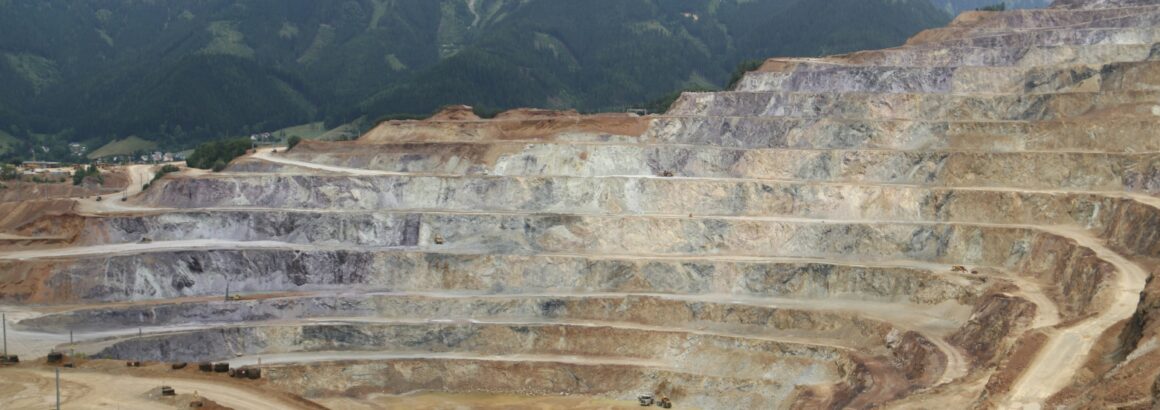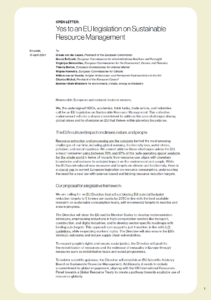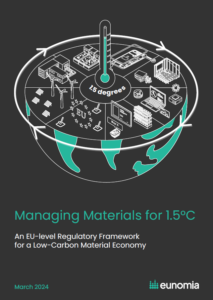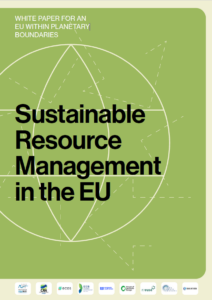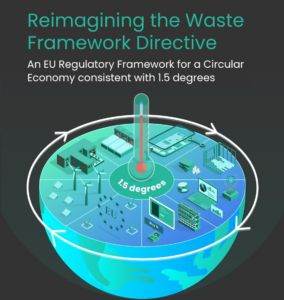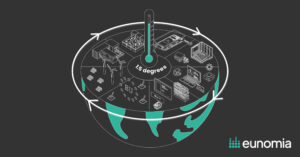Driving an ambitious agenda on prevention, resource use, and materials
Resource use reduction
Given the urgency to stay within a 1.5 degrees carbon budget, Europe needs a shift in perspective: from policy-making focusing on waste, it is time to focus on putting strategic resource use at the heart of EU’s priorities” – Aline Maigret, Head of Policy at Zero Waste Europe
The environmental impact of the consumption of an average EU citizen is outside the safe operating space for humanity, as concluded by the JRC in 2023.
Resource extraction and processing are responsible for:
- 90% of global biodiversity loss and water stress;
- 50% of global greenhouse gas emissions;
- Over 30% of air pollution-related health impacts.
At Zero Waste Europe, our mission is to redesign our relationship with resources and enable systems that do not generate waste in the first place, putting communities’ wellbeing at the centre. Over the years, we advocated to move away from waste incineration to prevention and reuse of products. The next frontier is to reduce material use whilst ensuring wellbeing for all – in other words, creating the conditions to live well within planetary boundaries.
Putting resource use on the agenda
The circular economy has so far focused on increasing resource efficiency – i.e. maximising the use of resources in the economy. While essential, this approach falls short of addressing our ever-increasing consumption of resources and its adverse effects on the environment and human health.
So far, the necessary overall reduction of resources used in the economy has been overlooked by EU policymakers. To avoid the rebound effect of increased resource efficiency, we advocate for combining circularity and sufficiency in all sectors, which starts with moving away from a “waste-only” lens. Zero Waste Europe is, therefore, making the case for the strategic use of resources.
Zero Waste Europe is also part of the European resource use reduction taskforce, an informal group gathering leading environmental organisations working on the topic. Together we have called on European leaders to introduce a framework for Sustainable Resource Management in the EU with binding, science-based binding reduction targets. These recommendations are in line with the Belgian Presidency of the EU’s initiative on sustainable resource management.
In 2023 and 2024, we published two studies together with Eunomia Research & Consulting and other partners which showed that, to align EU resource policy with the 1.5°C target, we need a ‘Materials Framework Directive’. The papers concluded that only a long-term revision of the Waste Framework Directive can guide the continued reduction in raw material consumption to deliver decarbonisation:
- “Reimagining the Waste Framework Directive,” Zero Waste Europe, 2023
- “Managing materials for 1.5°C – an EU level regulatory framework for a low-carbon material economy”, Zero Waste Europe, 2024
Europe has turned a blind eye to the staggering amount of resources needed to keep our economy going – resources that are mostly extracted in the Global South. To place our economy back within planetary boundaries and become more resilient to supply chain shocks, we demand targets for resource use reduction.
